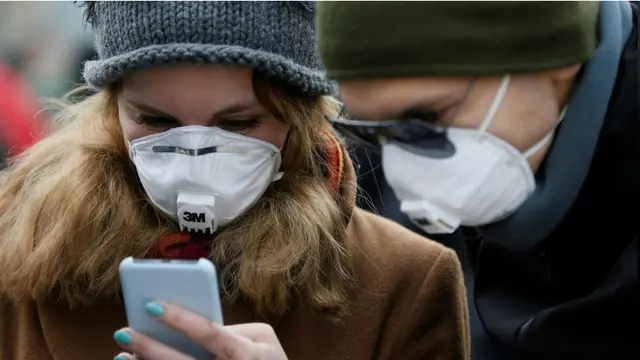Editor's note: This is the 46th article in the COVID-19 Global Roundup series. Here is the
previous
one.
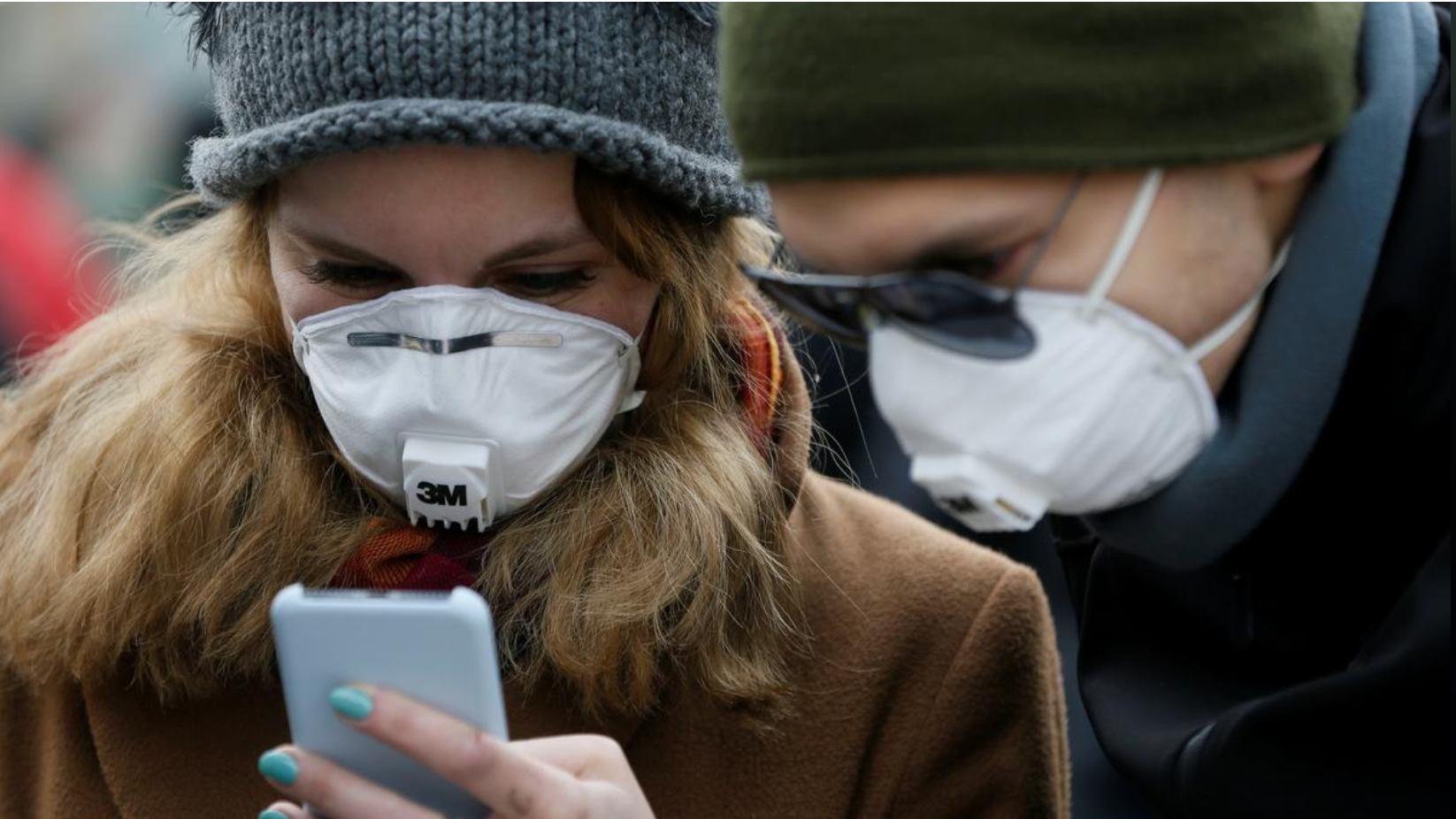
The COVID-19 pandemic is posing an unprecedented health challenge to the public, and the following lockdown measures to curb the spread of the disease has shut down large swathes of the world economy. An additional complicating factor is that growing numbers of countries are limiting exports of medical supplies to mitigate critical shortages at the national level.
The World Trade Organization (WTO) reported on Thursday that 80 countries and customs territories have banned or limited the export of face masks, protective gear, gloves and other goods since the coronavirus outbreak, adding the bans were imposed by 46 WTO members (72 if EU member states are counted individually) and eight non-WTO member countries, but only 13 WTO members (or 39 if the EU member states are counted individually) had notified the global trade body as required by its regulations.
The WTO generally prohibits export bans and restrictions, but it allows members to apply them temporarily to prevent or relieve critical shortages of foodstuffs or other essential products. Members applying the temporary restrictive measures need to report to the WTO as soon as possible to reduce economic uncertainty. If a country is unclear what measures have been adopted by other members, and new measures are being introduced regularly, it is hard for the country to efficiently adjust its purchasing decisions and find new suppliers, which could be particularly damaging for those seeking to procure materials needed for the fight against the COVID-19 pandemic.
The 13 members that notified the WTO are Albania, Australia, Bangladesh, Colombia, Costa Rica, Egypt, the European Union, Georgia, Israel, the Republic of Korea, the Kyrgyz Republic, North Macedonia, Thailand and Ukraine.
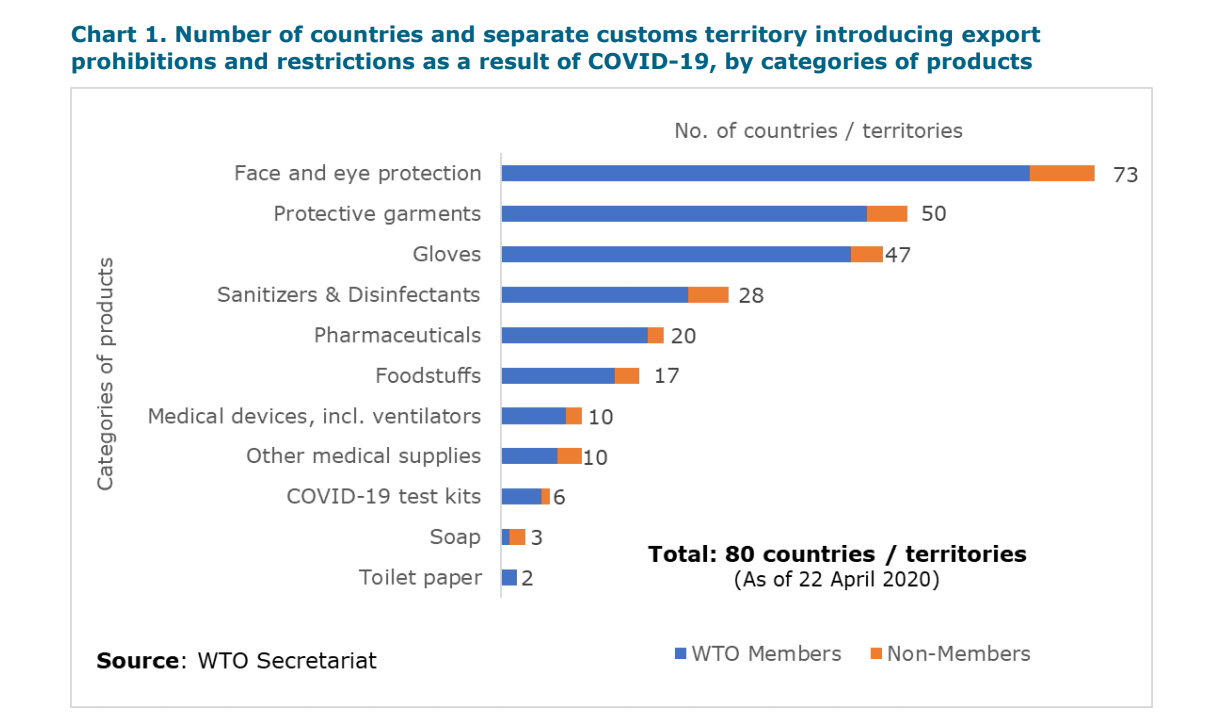
Screenshot from the WTO website
Lack of transparency about restrictions and failure to cooperate internationally could undermine efforts to slow the spread of the COVID-19 disease, which has infected 2.7 million people around the world and killed 184,910, the WTO said.
It provides possible actions for countries to improve transparency, including:
●Ensuring that the new measures are adequately published at the national level and, when possible, making them available on the website(s) of the relevant national authorities.
●Notifying as soon as possible any new export restriction to the WTO; in the case that these restrictions affect foodstuffs, notifying the Committee on Agriculture as well.
● Updating as necessary the information under the "transparency notification" of Article 1.4 of the Agreement on Trade Facilitation, including the relevant inquiry points.
● Endeavoring to provide additional information to other members beyond that required by the notifications, whenever possible.
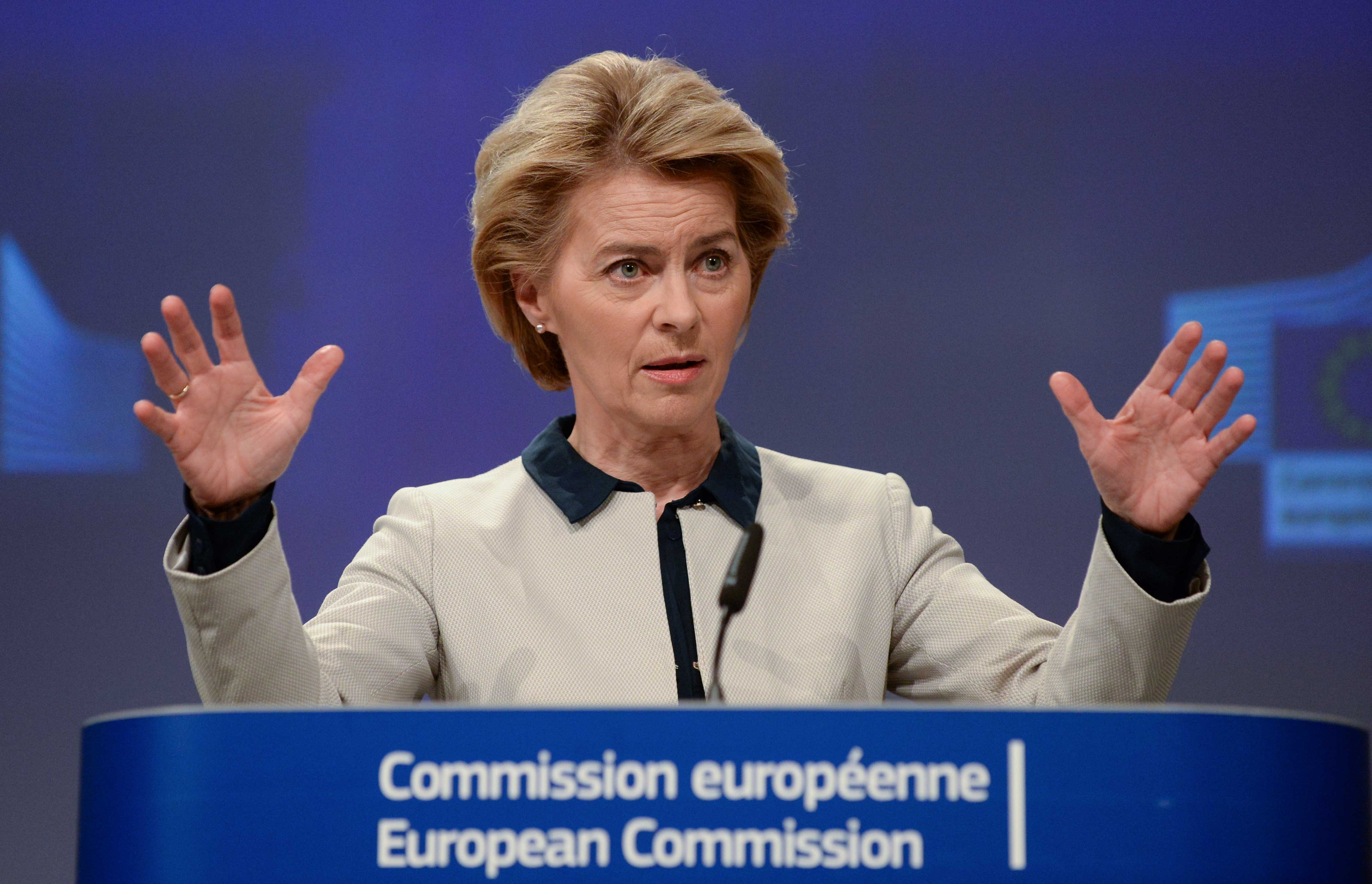
Ursula von der Leyen, president of the European Commission. The European Union is restricting the export of medical gear. /Reuters
The EU, on March 15, imposed an bloc-wide export ban on some medical protective equipment in a bid to keep sufficient supplies within the group when the coronavirus was spreading rampantly. Under the ban, exports to non-EU countries will be subject to authorization by member states. The export controls came into effect immediately after the announcement and will be lifted on April 26.
"We need to protect our health workers, who are in the first line of defense against the virus," European Commission President Ursula von der Leyen said in a video message. "We must safeguard them with protective equipment: Masks, gloves, protective garments, etc."
The restrictions came in after a number of countries, including France and Germany, introduced their own export controls, angering fellow members such as Italy that were most in need of such equipment.In EU member countries, medical supplies are concentrated in a limited number of member states, namely the Czech Republic, France, Germany, and Poland.
As the EU acted, Germany and France committed to unblocking their restrictions on inside-EU sales of personal protective health devices, easing the shortages and suffering in Italy's overstretched hospital system. However, experts warned there are unintended costs of shifting from national to EU-wide export restrictions.
Firstly, producing medical equipment requires access to parts that often must cross an external EU border, but when the EU blocks exports of essential medical goods manufactured in Europe, that may inadvertently stop trade in inputs needed to make those products in the first place, causing supplies to grind to a halt. The EU has long pushed developing countries to open up their markets to imports, and rely on EU suppliers for their essential medical equipment, but the ban may enable developing countries to realize that EU could be unreliable when they need it the most.
Aside from the EU, U.S. President Donald Trump also introduced measures to curb the export of medical products. The president invoked the Defense Production Act earlier in April to ban U.S. companies from exporting critical medical supplies and equipment to ensure that hospitals and health care facilities have the life-saving supplies they need to battle the coronavirus pandemic.
"The secretary of Homeland Security will work with FEMA to prevent the export of N95 respirators, surgical masks, gloves, and other personal protective equipment. We need these items immediately for domestic use. We have to have them," Trump said during adaily briefing of the Coronavirus Task Force.
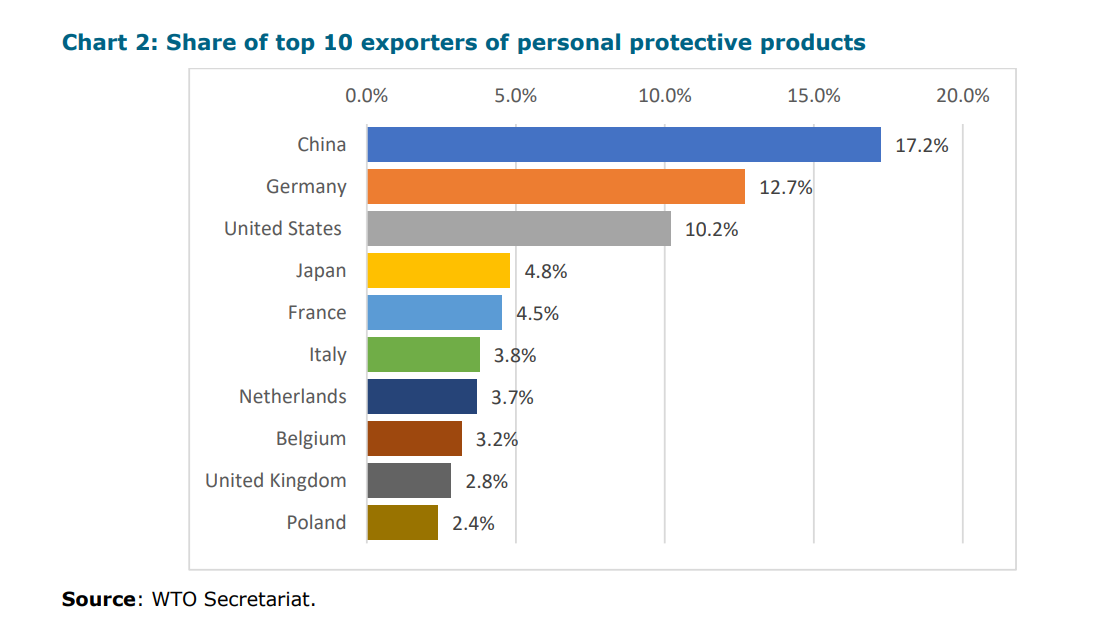
Screenshot from the WTO website
In an early report on the trade of medical products by the WTO, it noted that the U.S. is the top importer and second exporter of medical products worldwide in 2019. The country depends on imports for medical gear and their components. Last year, Americans bought more than five times the amount of the same respirators, masks, and gloves from foreign countries.
In early March, the U.S. granted exclusions from import tariffs for dozens of medical products imported from China, including face masks, hand sanitizing wipes and examination gloves. The tariff rate on the medical products was initially set at 15 percent, but was lowered to 7.5 percent on February 15 as part of the Phase one U.S.-China trade agreement.
China is the top exporter of personal medical equipment, including face masks, hand soap, sanitizer and protective spectacles, in severe short supply during the COVID-19 pandemic. China supplied 25 percent of world exports of face masks in 2019, and together with Germany and the U.S., the threeexporters account for more than 40 percent of world exports of protective supplies.
Breathing apparatus, including respirators and ventilators, are supplied by a small number ofcountries. Singapore has an 18percentshare of the market, followed by the U.S.with 16percent, the Netherlands with 10percent and China with 10 percent. The four WTO member countries export more than half the world's respirators and ventilators.
The tariff statistics show that the average most-favored-nation (MFN) applied tariff on COVID-19 relevant medical products for WTO members is around 4.8percent. In China, the average MFN applied tariff is 4.5 percent. The Republic of Korea applies tariffs at 5.9 percent on average. European Union members apply the EU common external tariff with an average of 1.5 percent, and Switzerland has an average applied tariff of 0.7 percent. The comparable applied tariff rate statistic for the U.S. is 0.9 percent.
(Cover image: People are wearing protective face masks amid coronavirus concerns in Kiev, Ukraine, March 17, 2020. /Reuters)
 简体中文
简体中文

